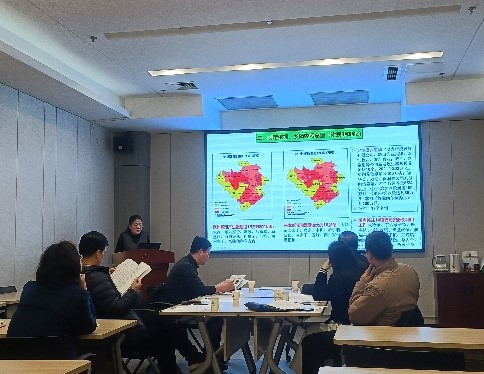Zhangwu County Promotes Green Farming with Innovative Livestock Manure Management Plan
Zhangwu County in Liaoning Province, a prominent livestock farming area in north-eastern China, is set to revolutionize its management of agricultural waste with the launch of a five-year plan to convert animal manure into valuable resources. Developed with scientific guidance from the Chinese Academy of Sciences' Institute of Applied Ecology (IAE), the initiative aims to boost green farming practices, improve soil health, and significantly reduce pollution.
The plan, titled the "Zhangwu County Livestock and Poultry Manure Resource Utilization Five-Year Plan (2024-2028)," was tailored specifically for the county by IAE’s Soil Health Maintenance Mechanism and Biological Regulation Innovation Team. On April 3, 2025, experts from Shenyang Agricultural University, the Liaoning Provincial Agricultural and Rural Development Service Center, and the Liaoning Provincial Academy of Agricultural Sciences endorsed the plan during a review convened by the Zhangwu County Agricultural and Rural Affairs Bureau.
Zhangwu County faces increasing pressure to manage livestock manure due to its expanding animal farming sector. This new plan offers a comprehensive strategy for collecting, treating, converting, and utilizing manure. Its primary objectives—reduction, harmlessness, and resource optimization—encourage the widespread adoption of organic fertilizer production, the Integrated crop-livestock systems, and the use of biogas for power generation. The target is to achieve over 80% comprehensive utilization of livestock and poultry manure within the county by 2028. This is expected to significantly decrease agricultural pollution and enhance the fertility of arable land, particularly the region's valuable black soil.
Associate Researcher ZHANG Yulan from IAE, pictured in Figure 1 presenting the plan's details, emphasized the institute's commitment to providing ongoing technical support and training to ensure the plan's successful implementation. Reviewing experts highlighted the plan's significance in tackling agricultural non-point source pollution and contributing to the "dual carbon" goals, which focus on carbon peaking and carbon neutrality. They also noted its potential as a model for other counties in Liaoning Province and the wider north-eastern region seeking to promote sustainable agriculture.

Figure 1: Associate Researcher ZHANG Yulan presents the plan's details.



